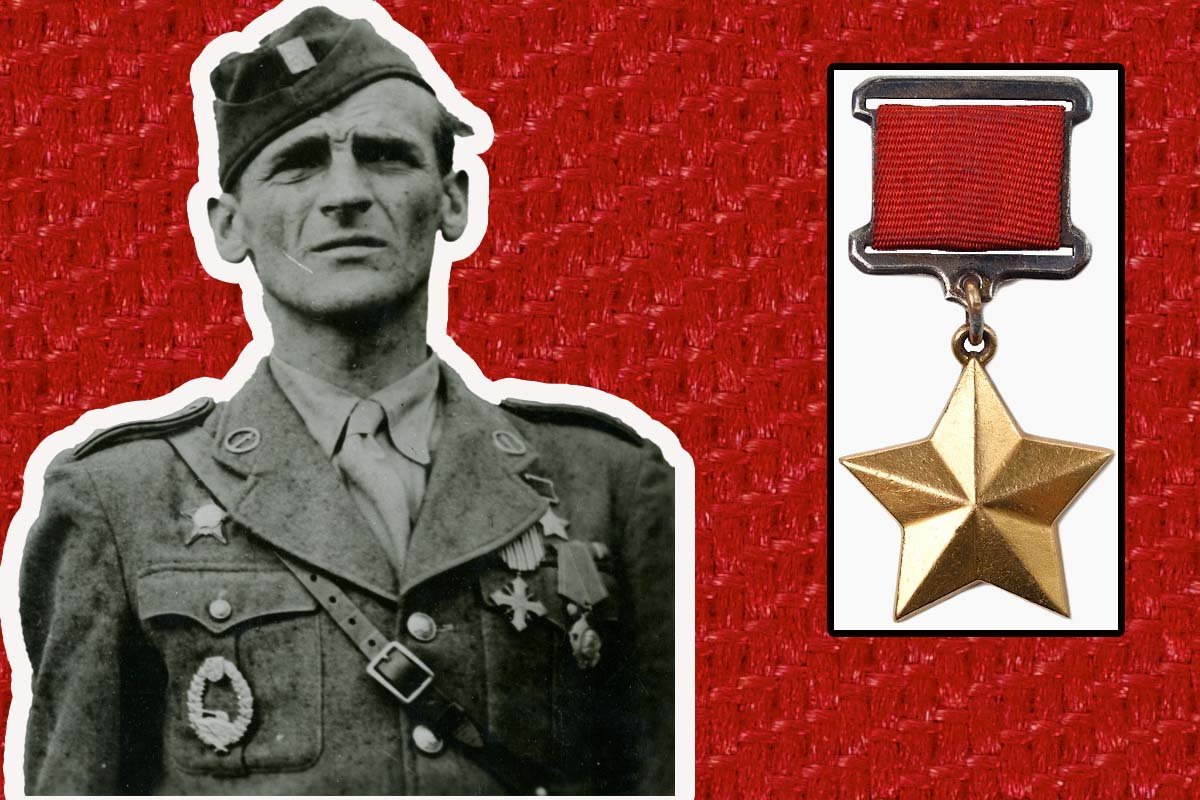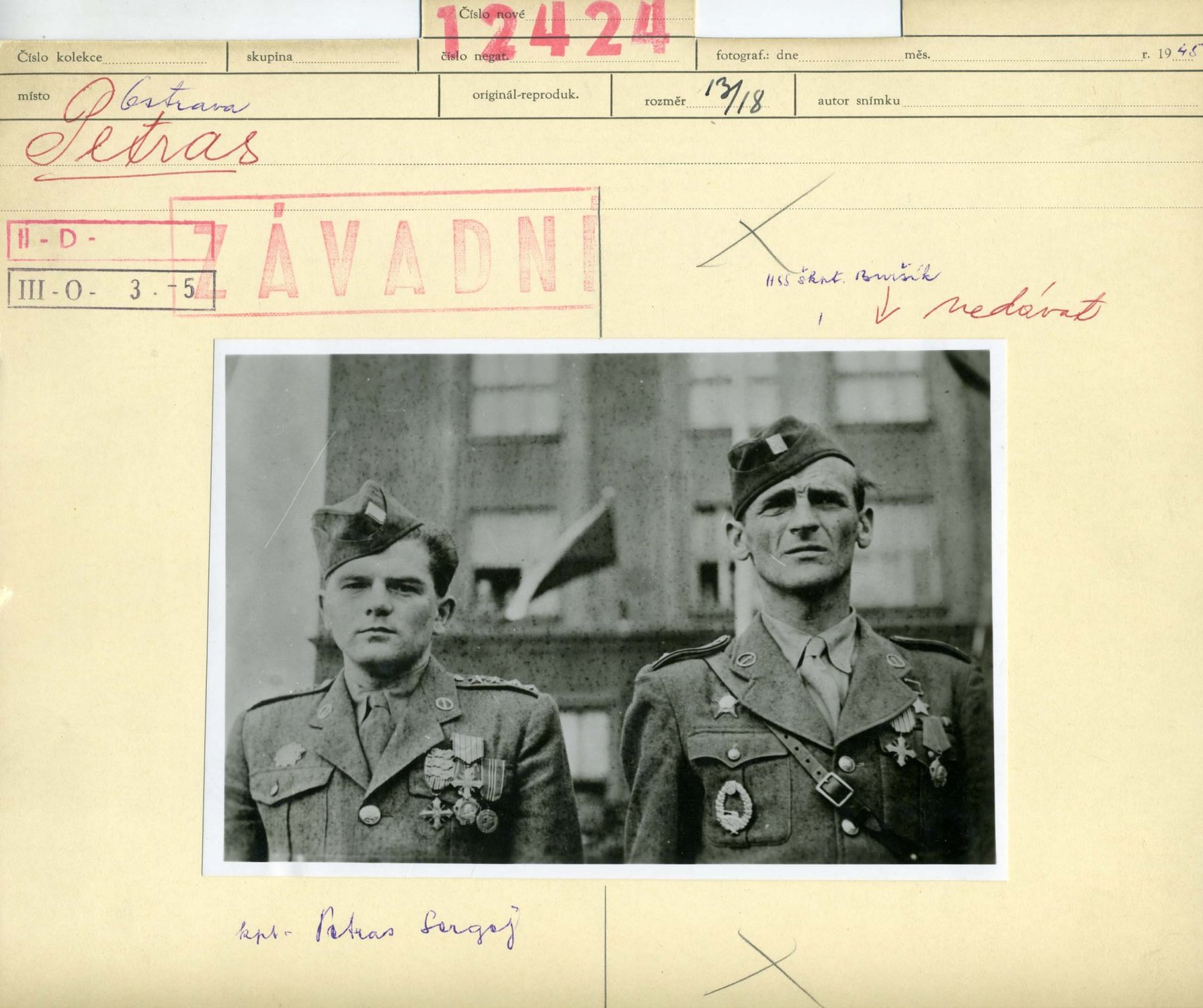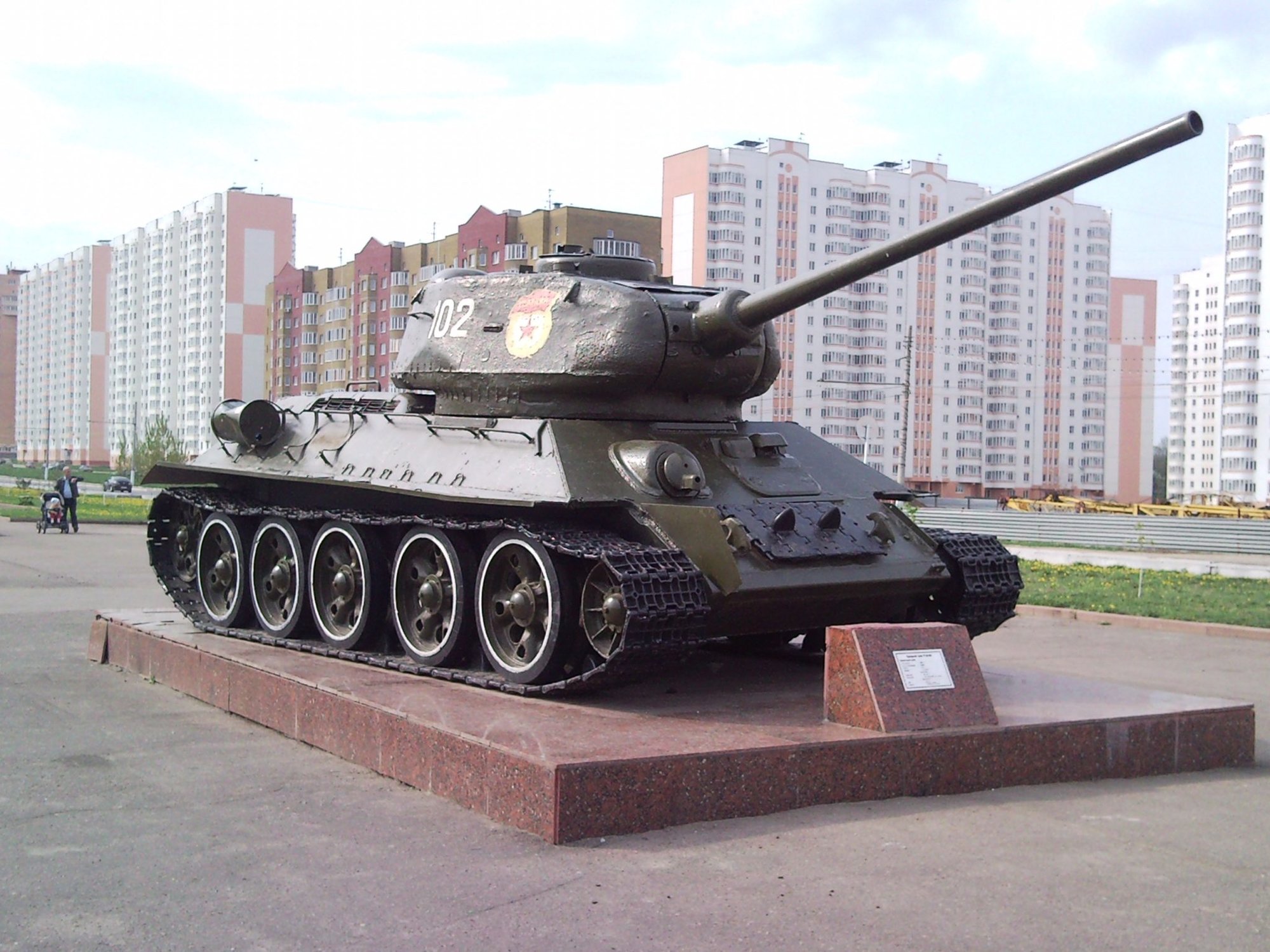
Maj. Gen. Josef Buršík was awarded the title of Hero of the Soviet Union for his role as a tank commander during World War II. However, after the Soviet Union invaded his native Czechoslovakia in 1968 during the Prague Spring, he returned all of his medals in protest. Composite by Coffee or Die Magazine.
Maj. Gen. Josef Buršík was one of Russia’s most exalted war heroes, named Hero of the Soviet Union for his leadership and bravery as a tank commander in a major battle in the Ukrainian city of Kyiv during World War II. But in the years after, his anti-communist views were deemed treasonous, and he went from a hero to a political prisoner. Although he was once considered a great man of courage by Joseph Stalin, Buršík returned all the medals he earned in battle.
Buršík was born to a low-income family on Sept. 11, 1911, in Postřekov, Czechoslovakia, about 100 miles southwest of Prague. After the Nazis invaded Poland in 1939, the 28-year-old joined the Czech resistance.
“The Krosno railway junction showed us horrors of the war in full for the first time,” he later recalled in his memoirs, according to the Czech Republic Review publication in 2012. “Enemy bombers destroyed the railway building, roundhouse, freight cars laden with flour; there were torn telephone and power lines hanging from poles.”

Buršík was one of several Czechoslovakian soldiers armed with machine guns who took part in the defense of Tarnopol, a Western Ukrainian city. The Soviet Red Army encountered them, and as a result, Buršík was held briefly in one of their camps. He was released and joined the 1st Czechoslovak Field Battalion and fought in the trenches during the Battle of Sokolovo in March 1943. His platoon was positioned on one side of the Mzha River along the Soviet-German front until his commanding officer withdrew his platoon to the second line of defense where the most brutal fighting had taken place. Buršík and others used anti-tank grenades against German armor. Though wounded, he managed to withdraw to the other side of the river bank and escape.
He received the Czechoslovak War Cross 1939, a medal of valor awarded to Czech soldiers who fought against German occupation, and the Soviet Order of the Red Star for gallantry in battle. He then transferred to the newly formed 1st Czechoslovak Independent Brigade and was given the command of a company of T-34 medium tanks.
Buršík sealed his legend in the fight remembered as the 1943 Battle of Kiev, as the city was known under Soviet rule.

“Our attack was unfolding quickly, but our further advance was hampered by strong resistance of enemy defense positions centered on the premises of the ‘Bolshevik’ factory,” he wrote, according to the Czech Republic Review. “Fortunately, two girls came running to my tank and told me where the German strongpoints and positions were located. I ordered three of my tanks to stop and shell the surroundings of the ‘Bolshevik’ factory. With my tank, named ‘Jan Žižka,’ I crashed through the factory’s gate, destroyed a half-track laden with explosives and together with submachine gunners of Warrant Officer Bažina neutralized the remaining pockets of resistance.”
Buršík received the title of Hero of the Soviet Union and later helped liberate other strategically important territories located along the Eastern Front. Upon the liberation of Czechoslovakia, he left for the Soviet Union to attend a military academy for armored and mechanized troops. Despite his willingness to advance his military career, a medical check identified an infection of tuberculosis in his left lung.
He stalled his studies and underwent treatment while still holding commands for various tank brigades.

“During my stay in the Soviet Union, not only I, but almost all Czechoslovaks were convinced of the difference between what the Communists proclaimed and how they behaved in practical life,” Buršík later said, according to military historian Eduard Stehlik. “I was convinced that the Russian man is not a free man, that he is not his master and that he must, I emphasize, unconditionally obey the orders of the Communist Party.”
He was arrested in 1949 over fictitious treason charges and sentenced to 10 years in the hilltop fortress Mirov Prison, which carried the reputation as one of the most strictly guarded prisons in Czechoslovakia. A court added four years to his sentence when he appealed his case. Because of his illness, he was transferred to the Olomouc hospital for treatment. Only a year passed until he attempted a daring escape. A sympathetic doctor helped him dupe the guards with an injection that brought fever, then he used a spare room key to unlock his door and fled by motorbike across the border to Germany.
? Congratulations to Joe Bursik! He's been named in the England Under-21 squad for the Euros. ??????? pic.twitter.com/HUfD2G0qvK
— Stoke City Live (@StokeCityLive) March 15, 2021
He lived in Germany until 1955 and later moved to the United Kingdom. In 1968, when the Soviet Union invaded Czechoslovakia to crush the Prague Spring with force, the former tank commander returned all of his war medals in protest, including the Hero of the Soviet Union award, to the Russian embassy in London. Buršík’s name, photographs, and legacy were subsequently erased from Czech history. In 1990, after he lived to see the fall of the Soviet Union, his honors were restored, and he received the promotion to major general.
Josef Buršík died in Northampton, United Kingdom, in June 2002. But his legacy lives on through his grandson, Josef John Buršík, a professional soccer goalkeeper for the Stoke City Football Club who has also made appearances on England’s national under-21 youth team.
“Every time I take the pitch I know what I’m carrying for my family — the honour of a great war hero who was so brave,” he said in 2021. “Every time I play my grandad is an inspiration.”
Read Next: Russia’s Invasion To Crush ‘Prague Spring’ Mirrors Ukraine Buildup

Matt Fratus is a history staff writer for Coffee or Die. He prides himself on uncovering the most fascinating tales of history by sharing them through any means of engaging storytelling. He writes for his micro-blog @LateNightHistory on Instagram, where he shares the story behind the image. He is also the host of the Late Night History podcast. When not writing about history, Matt enjoys volunteering for One More Wave and rooting for Boston sports teams.
BRCC and Bad Moon Print Press team up for an exclusive, limited-edition T-shirt design!
BRCC partners with Team Room Design for an exclusive T-shirt release!
Thirty Seconds Out has partnered with BRCC for an exclusive shirt design invoking the God of Winter.
Lucas O'Hara of Grizzly Forge has teamed up with BRCC for a badass, exclusive Shirt Club T-shirt design featuring his most popular knife and tiomahawk.
Coffee or Die sits down with one of the graphic designers behind Black Rifle Coffee's signature look and vibe.
Biden will award the Medal of Honor to a Vietnam War Army helicopter pilot who risked his life to save a reconnaissance team from almost certain death.
Ever wonder how much Jack Mandaville would f*ck sh*t up if he went back in time? The American Revolution didn't even see him coming.
A nearly 200-year-old West Point time capsule that at first appeared to yield little more than dust contains hidden treasure, the US Military Academy said.












